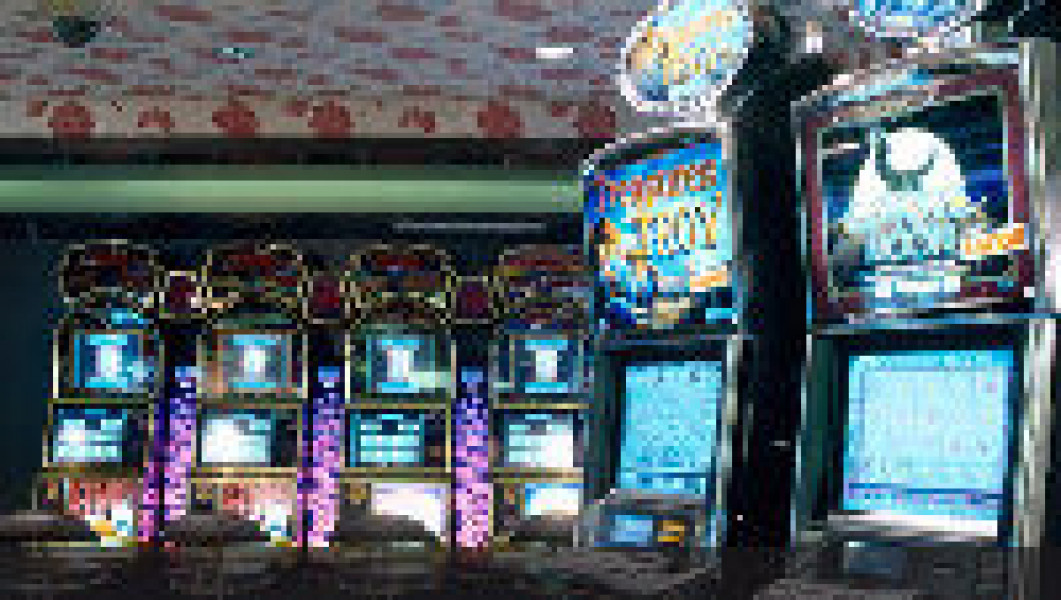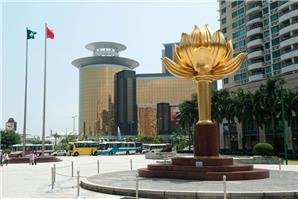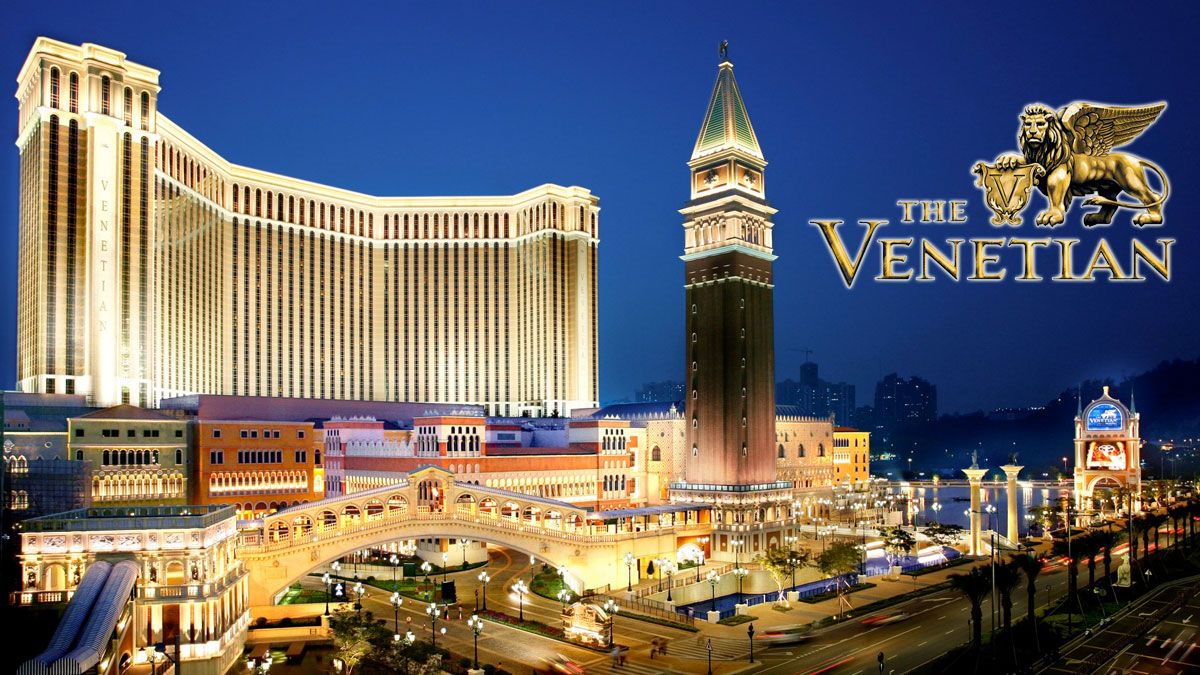Macau Casino Empire

Stanley Ho Extending Macau Casino Empire. Posted on: May 17, 2013, 05:16h. Last updated on: May 15, 2013, 09:18h. Jan 26, 2019 Billionaire Leong is the co-chairman of SJM, one of six companies authorized to operate casinos in Macau, and is a STDM director. SJM has 20 casinos, about 1,700 gaming tables and more than 2,400. The Associated Press HONG KONG - Casino tycoon Stanley Ho, whose business empire dominated the Portuguese gambling enclave of Macao for decades, died Tuesday in Hong Kong at age 98. Considered the father of modern gambling in China, Ho’s long and eventful life tracked the ebb and flow of southern China’s fortunes.
Stanley Ho Hung-sun, the patriarch of Asia’s largest casino empire for half a century and a man whose very name is synonymous with Macau’s rise to overtake Las Vegas as the world’s gambling capital, has died, according to his family. He was 98.
He is survived by 14 of the 16 children he had with four women. Ho referred to the mothers of his children as his wives, three of whom also survive him.
“Although we know the day will come, it does not ease our sorrow,” said Pansy Ho Chiu-king, the eldest child from Ho’s second marriage, adding that the tycoon passed away at 1pm at the Hong Kong Sanatorium & Hospital. “Dad will stay in people’s hearts forever and our family will continue to [contribute] to society.”
Ho leaves behind a gambling empire that contributed to as much as half of the tax receipts earned by the Macau government, a heft that made him the first living resident of the gaming hub to have an avenue in the territory named after him. One of Asia’s richest men for decades, Ho’s personal fortune was estimated at HK$50 billion (US$6.4 billion) when he retired in 2018 just months before his 97th birthday.
“It is a great loss for Hong Kong,” said Stewart Leung Chi-kin, chairman of the Real Estate Developers Association (Reda), the guild of Hong Kong’s powerful property industry, of which Ho served as chairman for 20 years until 2011. “Ho has contributed a lot to the real estate industry during his tenure at Reda. He never retreated even when he faced pressure from the government. He put Hong Kong’s interest as his top priority.”
Besides his business exploits and his lifestyle – the fodder for Hong Kong’s society pages – Ho is also known for the billions of dollars he gave away in philanthropy. His name appears on 12 museums, hospitals and sports centres in Hong Kong and Macau. He is equally known for paying HK$2.57 million the largest white truffle at a charity auction, as returning two bronze animal heads – looted by invading forces from the Summer Palace in Beijing – to mainland China.
Ho was a member of the Chinese People’s Political Consultative Conference (CPPCC), the advisory body to the legislature. In announcing his death during the ongoing CPPCC meetings in Beijing, the Chinese state broadcaster described the casino magnate as a “patriotic entrepreneur.”
“It’s the end of an era,” said Allan Zeman, the non-executive chairman of Wynn Macau, one of the territory’s six gambling concessionaires, and a competitor to Ho’s family fortunes. Ho was “a very important part of Hong Kong” and influenced Macau’s gaming industry for decades, he added.
Zeman, who is also the chairman of Lan Kwai Fong Group, described Ho as “a very kind and passionate person” with a charming personality. “One thing I still remember is that he loved to dance. At many balls, he and his wife were always out there on the dance floor.”
Born to riches in Hong Kong on November 25, 1921, Ho was an heir of one the four families that controlled much of old Hong Kong’s wealth and colonial-era business. One of 13 siblings, Ho was the son of businessman Ho Sai Kwong, chairman of the Tung Wah Group of Hospitals. His grandfather Ho Fook was a member of the Legislative Council in 1917, while his grand uncle Sir Robert Hotung was the Head Comprador of Hong Kong in the former British colony.
The Ho family were Eurasians and initially made their wealth as compradores for Jardine Matheson, the British trading house. Ho was Chinese in the eyes of foreigners, and a “gweilo” in Chinese society, he said in a 1972 interview with The Star, a now-defunct Hong Kong newspaper, using the Cantonese colloquialism for foreigners.
The young Ho, who got his name from the family’s summer home in Stanley, grew up in a two-house residence on MacDonnell Road, with two gardens that ran for half a mile, he said in 1972. After Ho Fook’s death in 1926, Ho Sai Kwong’s business collapsed, and the family fell into poverty.
The young Ho was so destitute that he was stricken by beriberi as a teenager because of malnutrition, and could not afford to pay a dentist to remove an aching tooth. He would run away when girls, attracted by his Eurasian looks, asked him to buy them coffee, because he was so poor, he said.
Ho’s career and fortunes would forever be tied to Macau, where he fled during the Second World War with only HK$10 in his pocket. Then a Portuguese territory, Macau was neutral in the Pacific War in keeping with Portugal’s neutrality throughout the world war. The tiny colony became a haven for European and Chinese spies, businessmen and refugees.
Ho got his start in business at the Macau Cooperative Company, then the largest firm in the territory. The company smuggled luxury goods, machinery, rice and other essential items into wartime Macau. Ho made his first million by the time he was 24, he said.
Ho married his first wife, Clementina Angela Leitao, in 1942 in Macau. Also known as Tininha, Leitao came from a wealthy Portuguese business family, a lineage that gave Ho his entry into the upper echelons of Macau’s society.
Ho had business interests and property holdings that stretched from Portugal to Vancouver from his Macau base. Over the years, he tried to expand his casino empire in North America and Australia, but was always dogged by his alleged ties to triads, something he always denied.
Those connections Ho built in Macau continued to serve him long after the war ended. In 1961, with the financial backing of Henry Fok Ying-tung, Ho won the sole concession for gambling in Macau – an enormously lucrative financial prize – with his company, Sociedade de Turismo e Diversoes de Macau (STDM).
By the early 1990s, the tax returns from Ho’s gaming operations, centred around the casinos of the Hotel Lisboa and the Grand Lisboa, accounted for half of the Macau government’s total revenue. His business prospered even after Macau returned to Chinese rule in 1999, when the city became the sole location on Chinese soil to operate legal casinos.
The inflow of Chinese high rollers, retail gamblers and tourists fuelled the growth of Macau, helping the territory to surpass Las Vegas as the world’s gambling hub. Ho’s empire still prospers, accounting for about half of the more than 40 casinos in Macau, as well as major gaming complexes in Portugal.
“He selflessly shared the secrets of his success when Macau opened up gambling to competition, and supported the government’s push to modernise the management of gaming,” said Lui Che-woo, chairman of Galaxy Entertainment Group, one of the rival casino concessionaires in the gambling hub. “Macau has surpassed Las Vegas today, due in no small part to Ho’s contributions.”
The Ho and the Fok families remain intertwined. The Henry Fok Foundation reached a pact in January 2019 to keep the children of Ho’s second wife Lucina Laam King-ying as the majority shareholders of Hong Kong-listed SJM Holdings, one of the six casino license holders in Macau.
Laam’s second daughter Daisy is chairman of the company, while Ho’s fourth wife Angela Leong is co-chairman with a Fok family’s scion Timothy Fok Tsun-ting. SJM operates 20 casinos in Macau, with 1,700 gambling tables and 2,400 slot machines between them.
The sprawling Ho clan, which includes kung fu superstar Bruce Lee as Ho’s second cousin, practised polygamy and had a vast network that stretched throughout Hong Kong’s business and socialite circles.
Ho married his first and second wives before Hong Kong outlawed concubinage in 1971. Still, Ho went on to sire 17 children with four wives. Every one of Ho’s three living wives (his first wife Clementina died in 2004) own majestic homes in Hong Kong and have become business owners in their own right.
His fourth wife, Angela Leong On-kei, has an estimated net worth of US$3.7 billion, and owns a string of high-end commercial and retail real estate in Hong Kong, Macau and mainland China.
Ho’s third wife Ina Chan had an estimated fortune of US$1 billion in 2014. Lucina Laam, Ho’s second wife, is the mother of three billionaires – daughters Pansy Ho and Daisy Ho Chiu-fung, and son Lawrence Ho Yau-lung. Pansy Ho, whose 2018 fortune was estimated at US$5.5 billion by Forbes, is one of Hong Kong's richest women.
In 2011, his second and third wives, plus the children of his second wife, were alleged to have tried to illegally take over his casino holdings. The affair ended in an amiable settlement, but only after a public fight that exposed the fractures in the extended family.
It wasn’t the only time that the Ho family squabbles erupted into public view. In 2005, in the middle of an acrimonious fight with his sister, Winnie, over dividends and payouts from investments, Ho said: “I no longer regard her as a sister.”
Winnie had once been the lover of Eric Hotung, grandson of Robert Hotung – they were caught up in their own fractious lawsuit in the 2010s, soon before Winnie died. During the war, Winnie and some of her family had fled to Vietnam, which was a major source of the rice that was imported to wartime Macau.
Like many casino bosses, Ho himself didn’t indulge much in gambling. But unlike many of his peers, he loved ballroom dancing.
Ho seemingly enjoyed the intrigue and idiosyncratic nature of his life. In later life, he partnered with Albert Yeung Shau Shing of Emperor Group on a business in North Korea. During the 2003 US invasion of Iraq, North Korea’s government offered asylum to Saddam Hussein, extending the overture from Ho’s Macau office.
Of Ho’s 17 children, only three – Pansy, Daisy and Lawrence – have managed to become business leaders in their own right. Daisy, the second daughter of Ho’s second wife, is active in politics, having been appointed to the Chinese People’s Political Consultative Conference (CPPCC) representing Tianjin since 2008. Youngest daughter Josie Ho from the second family is a Hong Kong actress and singer.
Stanley Ho was no stranger to tragedy either. His eldest son, Robert, died in a car crash in 1981 along with wife Suki Potier, a well known British model, leaving behind two young children. Robert’s death was said to be devastating to Stanley and Clementina.
Ho had reportedly been grooming Robert as heir apparent. A palatial garden home on Shek O Headland Road, bought by Stanley and later occupied by Robert, was left to decay and fall into ruin.
It was later bought by Ho’s third wife, Ina, who redeveloped the site into luxury town houses.
The leaders of both Hong Kong and Macau expressed their condolences to Ho’s widows and children. Due to the outsize role of his casino business to Macau’s economy, job creation and social stability, Ho was instrumental in the territory’s peaceful return from Portuguese rule to Chinese sovereignty, serving as deputy chairman on the preparatory committee for the 1999 handover.
Though weary at first of being addressed as a “comrade” by Communist Party cadres - he was concerned that his fortunes would be nationalised - he later found comfort in being addressed as a “councillor.” He preferred to be known as a “patriotic capitalist,” Ho said in an interview with Guangzhou Daily.
“Ho was a larger-than-life figure whose unparalleled vision, entrepreneurial spirit, resourcefulness and fearlessness were widely-recognized and well-respected,” according to a statement issued by Shun Tak group on behalf of the family. “To us, he was and forever will be our inspirational role model.”
Stanley Ho, a onetime kerosene trader who built a casino empire in Macau that propelled the Chinese island past Las Vegas as the world’s biggest gambling hub, has died at age 98, local media reported.
Butcher-turned-gambling billionaire fights for his casino empire. People away from slot machines in casinos from Las Vegas to Macau. His company is also battling allegations of corruption, its.
Known as the King of Gambling, Ho dominated gaming in the former Portuguese colony after winning a monopoly license in 1961. His SJM Holdings Ltd. flourished as China’s economic opening created a flood of new wealth in a country with a passion for gambling. SJM now controls 20 casinos on an island of about 10 square miles.
Ho’s rise transformed Macau from a commercial backwater into the “Las Vegas of Asia” by exploiting its big advantage over the rest of China — casinos were legal. As his fortune swelled, he expanded beyond the island, building residential and office buildings in Hong Kong. In 1984, he won a license to operate a casino in Portugal and spent $30 million to open the Casino Pyongyang in North Korea in 2000.

Ho’s Macau monopoly expired in 2001, two years after China regained control of the island from Portugal. China then granted licenses to competitors, including Sheldon Adelson’s Las Vegas Sands and Wynn Resorts Ltd. Rather than hurting Ho, the increased competition coupled with China’s booming economy accelerated Macau’s growth into the world’s biggest gaming hub and Ho’s fortunes ballooned.
List Of Casinos In Macau
The city’s gaming revenue has become a barometer of the economy of China, where two thirds of its gamblers are from. While casino takings have usually grown with China’s GDP, it plummeted in 2014 when China launched an anti-corruption campaign and again in 2020, after the coronavirus pandemic triggered a 97% drop in revenue as Chinese gamblers were prevented from travel into the enclave.
Ho fathered 17 children with four women and when he retired around mid-2018, he passed some of the top roles at SJM to his heirs. Daisy Ho, his daughter, became chairman and executive director. Angela Leong, SJM’s second-largest shareholder whom Ho referred to as his fourth wife, became co-chair with another executive director.
Still, the succession reopened long-simmering family rivalries. In January 2019, Pansy, his eldest daughter with his second wife, joined forces with some siblings in an alliance that holds sway over a controlling stake in SJM, giving her the upper hand over Leong in the fight for the jewel in the crown of Ho’s $14.9 billion empire. Pansy, one of Hong Kong’s richest people, is also executive chairman of Shun Tak Holdings Ltd., which runs most of the ferries between Hong Kong and Macau.

Ho was born Nov. 25, 1921, into a wealthy Hong Kong family of Chinese and European descent and attended university in the city. His family’s circumstances deteriorated during World War II, when the Japanese invaded the British colony. At age 21, he fled to neutral Macau where he got his start trading everything from kerosene to airplanes, at a time when the island was best known for fishing and producing fireworks and incense.
Ho was an avid ballroom dancer and a former Hong Kong tennis champion. He won the Chinese Recreation Club doubles competition for older players for several years running into his 80s. Ho also carried the Olympic torch in 2008.
Get The Brief. Sign up to receive the top stories you need to know right now.




